‘I have buried more than 50 friends’: My life as a British soldier fighting on Ukraine’s bloody front line
Solo, a former British soldier from Yorkshire, who joined the International Legion in Ukraine, tells Kim Sengupta about his brutal close quarters battles with Russian soldiers and the friends he has lost

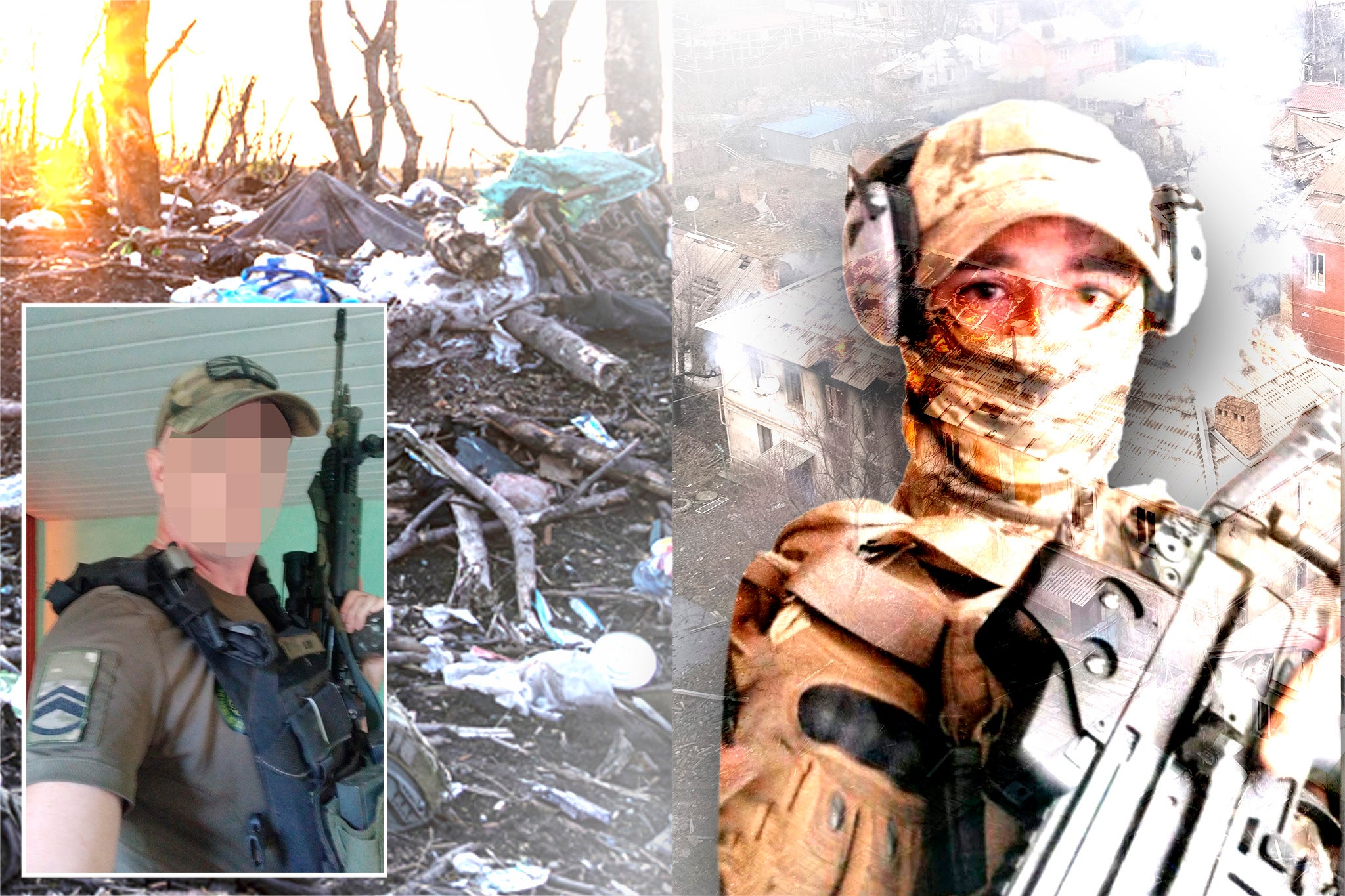
Your support helps us to tell the story
From reproductive rights to climate change to Big Tech, The Independent is on the ground when the story is developing. Whether it's investigating the financials of Elon Musk's pro-Trump PAC or producing our latest documentary, 'The A Word', which shines a light on the American women fighting for reproductive rights, we know how important it is to parse out the facts from the messaging.
At such a critical moment in US history, we need reporters on the ground. Your donation allows us to keep sending journalists to speak to both sides of the story.
The Independent is trusted by Americans across the entire political spectrum. And unlike many other quality news outlets, we choose not to lock Americans out of our reporting and analysis with paywalls. We believe quality journalism should be available to everyone, paid for by those who can afford it.
Your support makes all the difference.On the morning Ghost died, Solo was in ferocious combat, exchanging fire with the Russians in a field of swaying tall grass in the bloody struggle to gain ground outside Bakhmut.
Recalling the silhouettes of men lit up in the dawn mist by muzzle flashes from their guns, the former British soldier describes the pale horizon glowing orange from bursts of artillery shells, as he stands surrounded by the urgent whispers and cries of the wounded.
After an hour and a half of this exhausting combat, Solo sees Ghost – his platoon commander – lying nearby with nine bullets in his body, his gun still in his hands.
A second fighter, Kev, has also been shot, with blood pumping out of his neck. He does not survive, despite the desperate attempts of a third comrade, another British fighter known as Leeds.
Solo, 43, from Yorkshire, was close to both men who died, getting to know them while serving on the frontline with the International Legion, a force of foreign volunteers fighting for Ukraine after Vladimir Putin’s invasion.
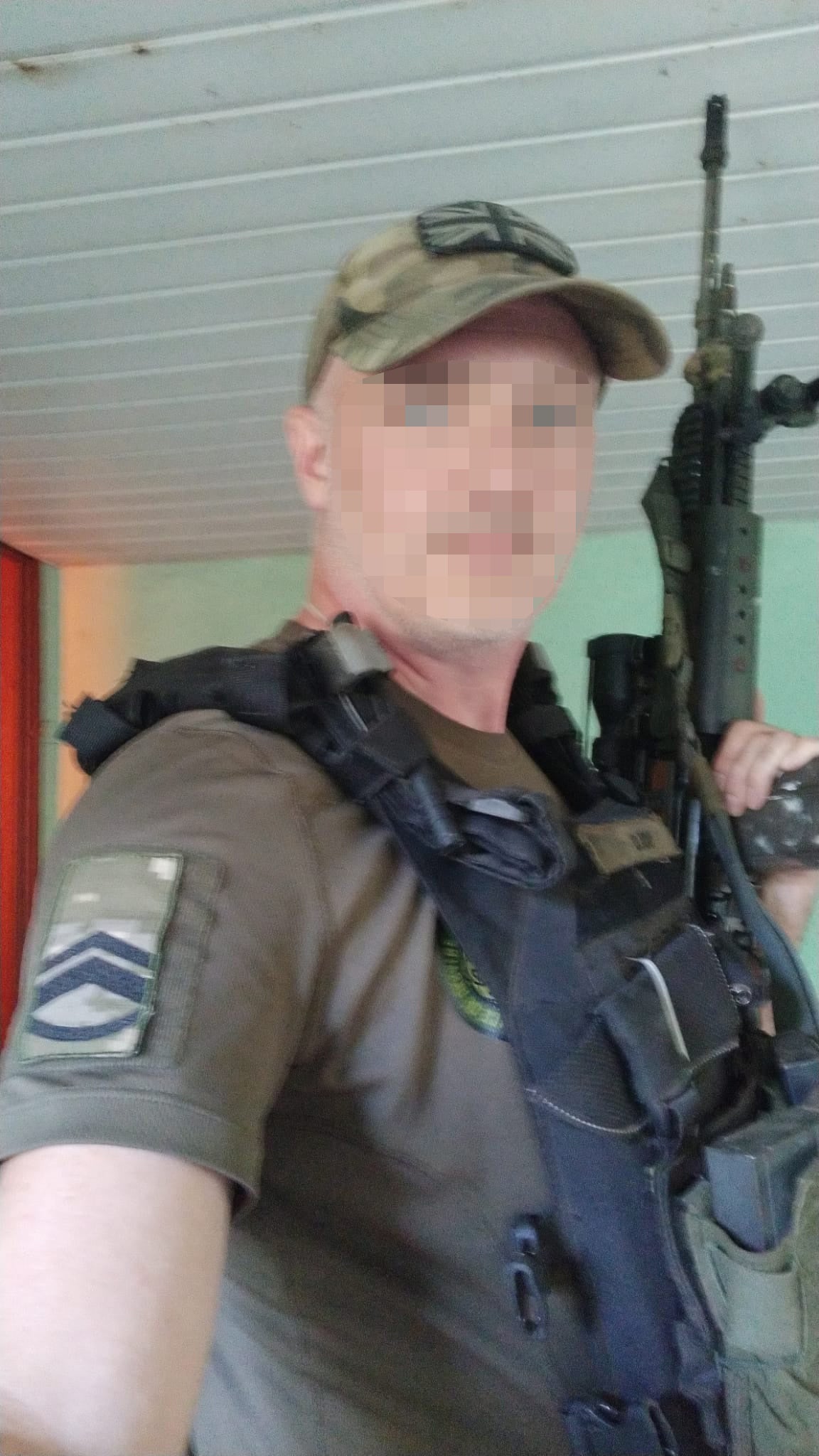
“What went down was really heavy,” he recalls. “I’d normally have used 60 rounds max in an operation like that, but I fired 140 rounds that day, our guns were hot in our hands. The Russians were no more than 10 [or] 15 meters away, it was all a bit crazy.
“At one point a Russian sneaked up behind Leeds as he was tending to Kev. As he was about to take his shot I fired and managed to hit him. Leeds grinned and gave me a thumbs up, the guy had fallen on him he was so close. Then there was bedlam again.”
Solo, Ghost, Leeds and Kev are call signs. The identities of Solo and Leeds, both from Yorkshire and both ex-servicemen, cannot be disclosed for security reasons.
Ghost was the call sign of 45-year-old Michael Zurek, who served with the Polish military before going to Ukraine. Members of both countries’ armed forces attended his funeral in his hometown, Berlin.
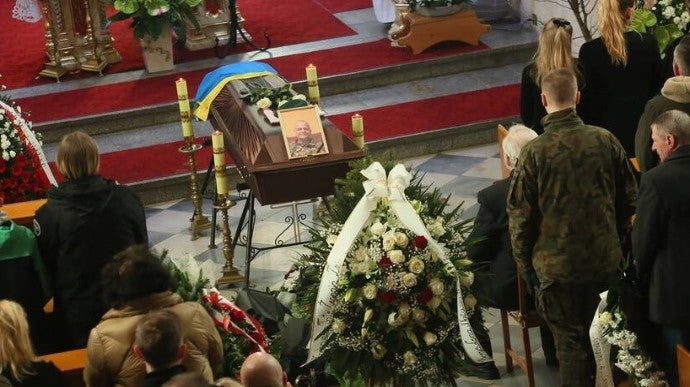
The eulogy for Mr Zurek, a father of four, read: “He died for a free Ukraine and a safe Poland. He did not spare his own blood, his own life”. Natalia, his 16-year-old daughter, spoke during the funeral service of a “wonderful father” who “taught us the importance of supporting each other and counting on each other”.
Kevin David, 30, had gone to Ukraine from France as a humanitarian worker at the start of the war. He told friends that seeing the suffering inflicted by Russian forces made him take up arms. “He had thought hard about it and decided that fighting the enemy was the best way to protect civilians,” said a fellow French volunteer.
Solo is among the legionnaires who stayed when many others had gone home. Some who left were fantasists with florid and questionable tales of Special Forces. Some went after being exposed to the brutal reality of conflict. Others left at the outset after being told the rules meant they had to sign up for the duration of the war.
Those who remain are battle-hardened soldiers, committed to the fight and taking part in some of the most dangerous missions of the war. They are, they say, only too aware of the relentless casualties on both sides and the possibility they may not make it back home.
Around 10 British volunteers are believed to have been killed in Ukraine. In some cases, it has taken months for their families to find out what happened. Just last weekend, British authorities were told by the Ukrainians that the body of Daniel Burke, a former member of the Parachute Regiment missing since early August, has been found in the south of the country.

“We are all aware of our mortality,” says Solo. “I have buried more than 50 friends here; they were of all nationalities. Ghost was a good friend as well as a great leader. We knew how compassionate he was, others just saw a big, scary man. Kev was just a lovely, lovely guy, we miss them both.
“We try very hard to stay alive, I can assure you. We won’t take on missions that we think are unnecessarily risky, but we also know the reality here. The casualty rate for Ukraine is not as high as for the Russians, but it is high. It’s true, of course, that the Ukrainians have now got a lot of Nato tanks and APCs (armoured personnel carriers); but we are having to do a lot of fighting dismounted because the minefields are a problem for armour. So there are always risks, in the trenches, on open ground, you are a target.”
The first taste of what lay ahead for Solo and his international comrades came a fortnight after arriving in Ukraine. Their training base at Yavoriv, near Lviv in the west, was hit by 30 missiles. The Kremlin boasted that “180 foreign mercenaries have been killed”.
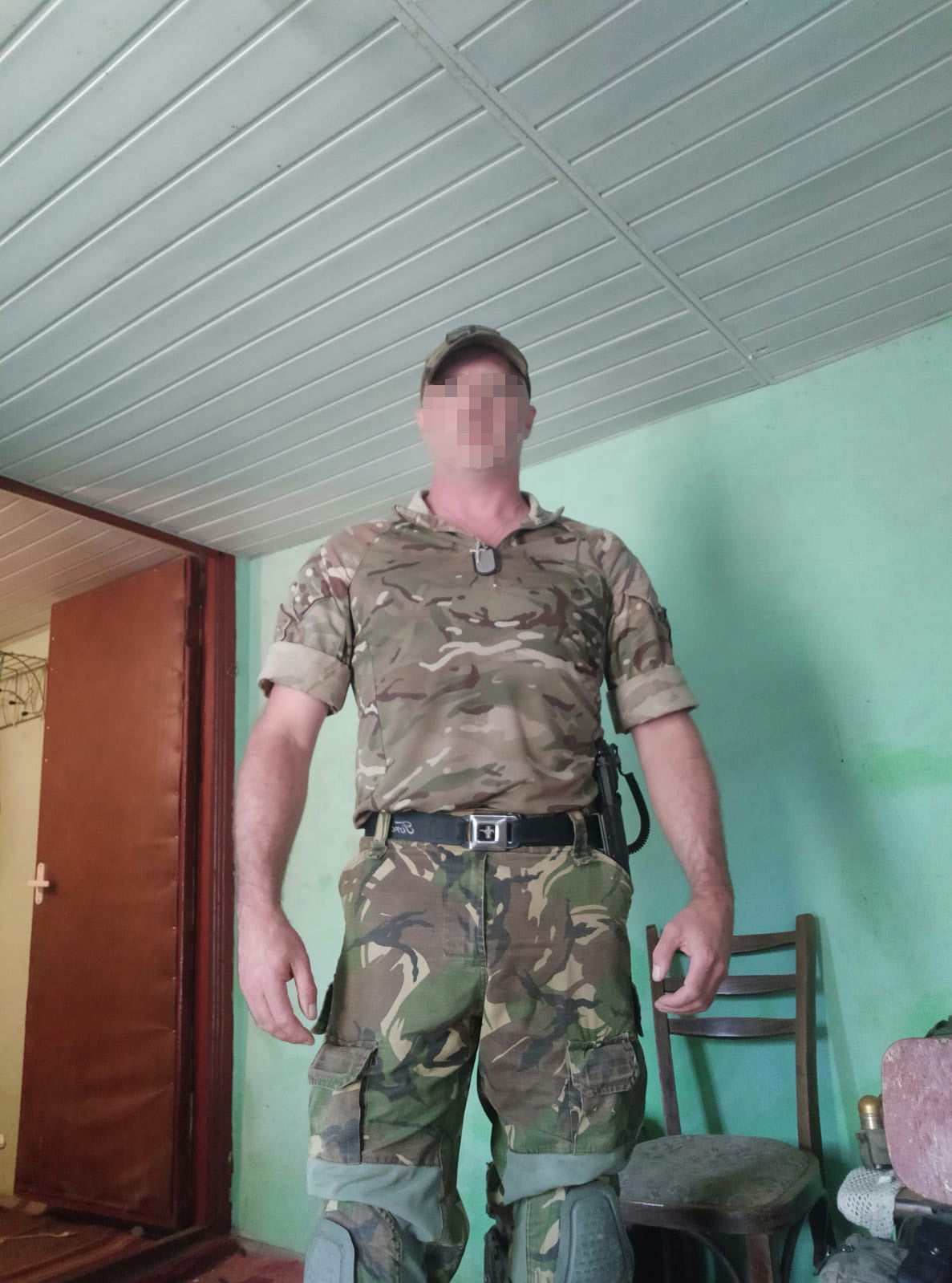
In contrast, Ukrainian authorities reported 60 dead and 160 injured, all Ukrainian. Other accounts claimed several dozen foreign volunteers died. One local news report said three British nationals had been killed. This was untrue but caused great distress to the families back in the UK.
Around 1,000 foreigners were at the Yavariv camp at the time of the strike. “The Russians saying they killed hundreds was propaganda,” recalls Solo. “But the attack did have one desired effect for them – about half the volunteers left the country the next day.
“It was understandable, what happened was terrible. The explosions went on and on. There were buildings on fire, people covered in blood screaming, burned bodies, it was a really bad scene.”
Solo was praised by the Ukrainian military for helping to supervise the evacuation of other trainees from dormitories. He had been the last person to leave the building.
“My army training kicked in very quickly, that’s all it was,” he says. He had spent seven years in the British army, in an infantry and mortar platoon, with the Yorkshire Regiment, serving a number of deployments abroad. Both his grandfathers were in the military, in the army and the RAF.
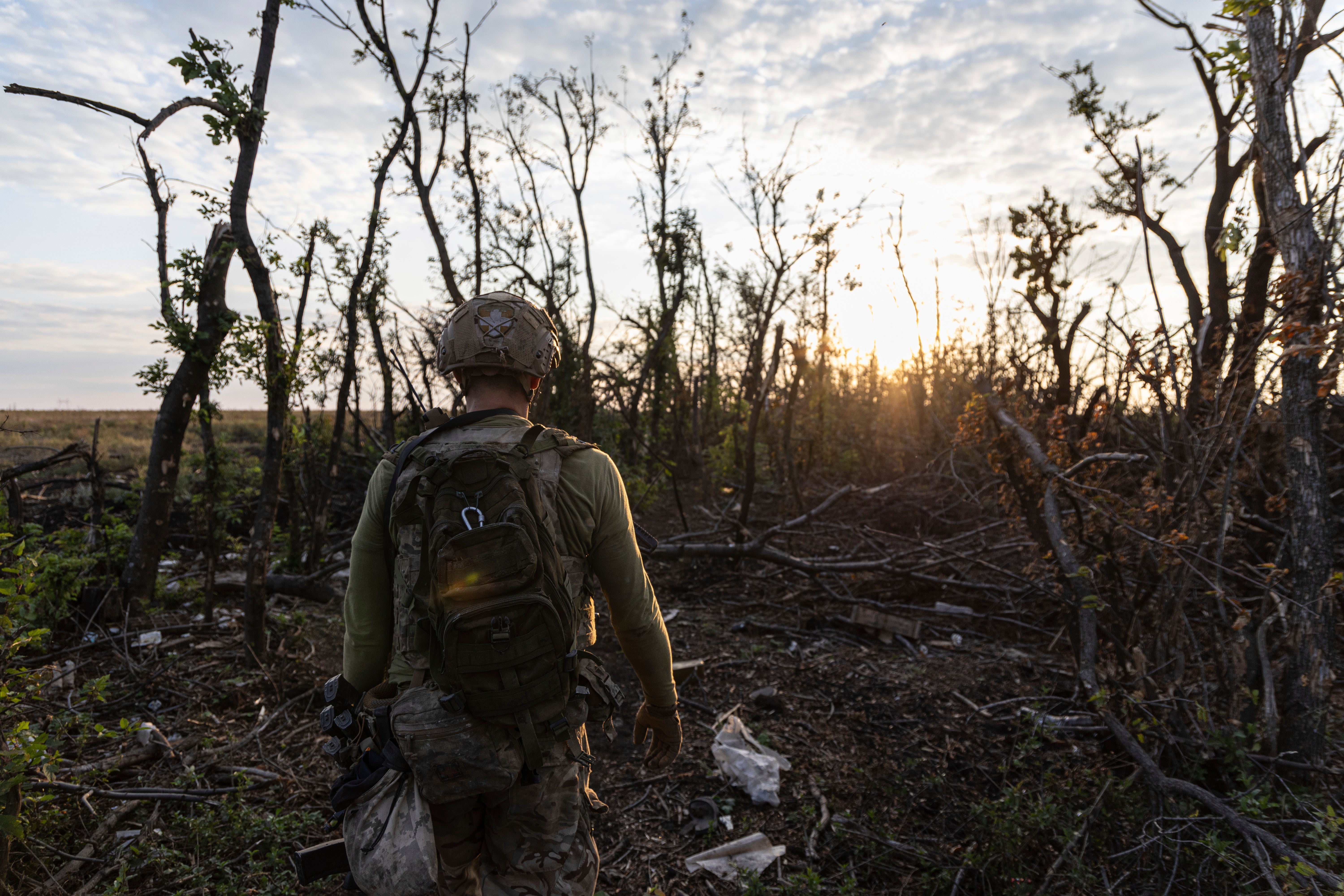
Solo left the army as an NCO (non-commissioned officer) and settled down with a partner. He began working in private security, providing guards for the retail sector. His relationship did not last, but work was successful and his business prospered.
However, the former soldier hankered after a more active life and applied to join the police, gaining entry through a fast-track system. But, before he could get started, Solo was severely injured in a car crash.
Doctors told him that he was unlikely to walk unaided again, and for the next 12 years of his life, he was in a wheelchair and then relied on a walking stick. He focused on rehabilitation and getting fit, completing an Open University degree in palaeontology.
We meet at a cafe in the Donbas city of Druzhvivka, just after he had returned from a patrol. A fit-looking man of medium height, he is studiously polite to those around us as he exchanges greetings with Ukrainian civilians and soldiers. He speaks about his experience and emotions in a matter-of-fact voice, pausing only to recall details.
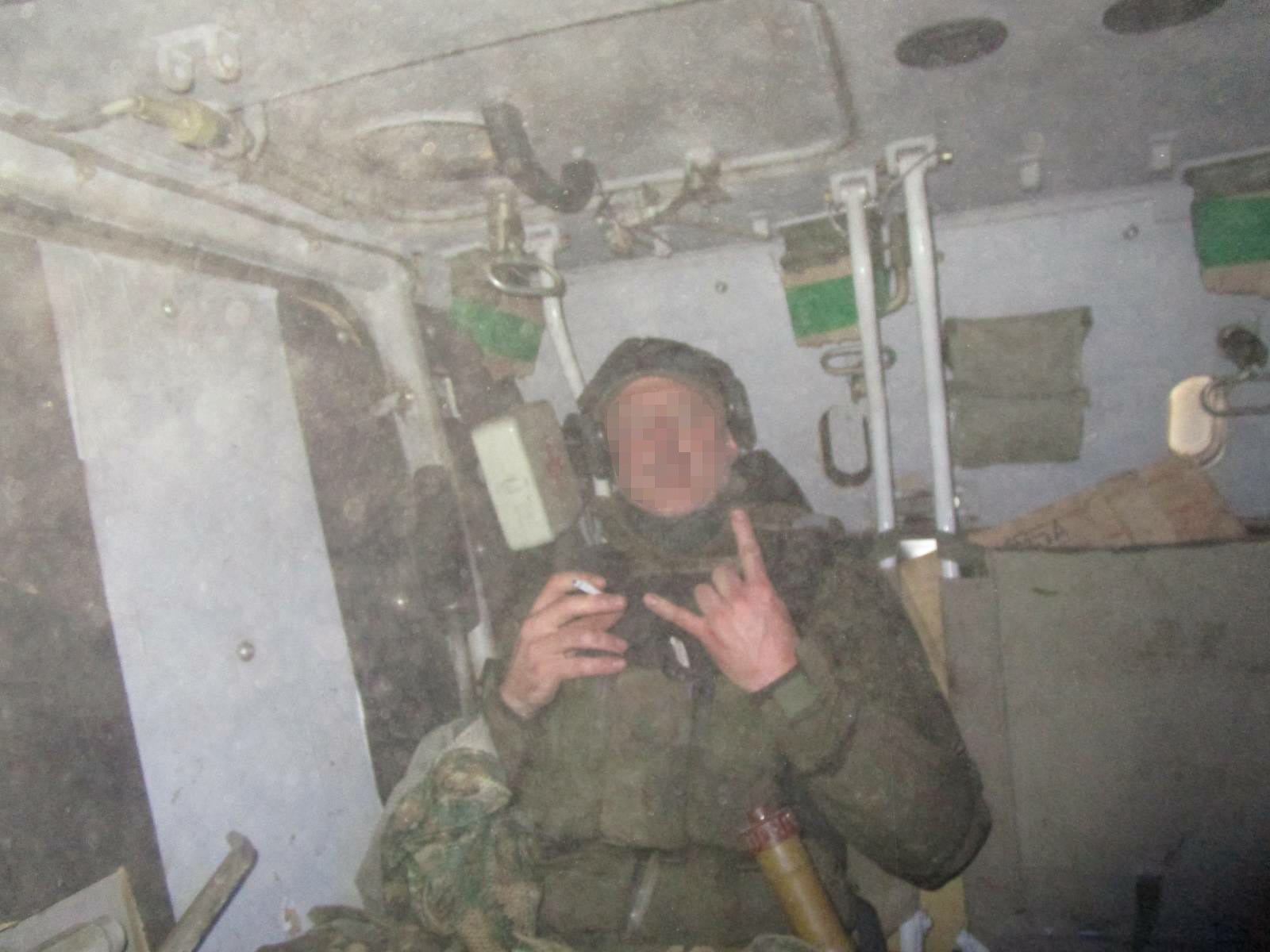
Solo and his unit are restricted in movements when off-duty. Opportunities for shopping are often limited and I ask whether we can bring him anything.
He, personally, is fine, but requests a few basic “treats” for the men in his unit if possible: “It keeps them happy and they deserve it after all they’ve been going through, we’ll be really grateful.”
Solo and his wife are separated and they have a teenage boy. His decision to volunteer in Ukraine caused his family concern that only deepens the longer he stays. He tries to reassure them but acknowledges the stress they must feel.
“My mother now has taken a more practical approach. She is a counsellor, quite well known in her field, in fact, had a member of the royal family as a client, and she has decided to treat me like one of her clients”, he laughs, throwing up his hands. “But hey, I go along with that, I’m sure it helps. We have to be mentally, as well as physically, prepared for what we face.”
Solo has not left Ukraine since he arrived. He has, in that time, faced three close calls with artillery shells, mortar rounds and IEDs (improvised explosive devices), suffering cracked ribs and broken bones. He underwent an abdominal operation in Kharkiv last week for a lingering injury.
After joining the International Legion, the former soldier was made a company sergeant in the 1st Battalion, and later promoted to chief sergeant. He and his unit took part in the defence of Kyiv in March and then Kharkiv the following month.
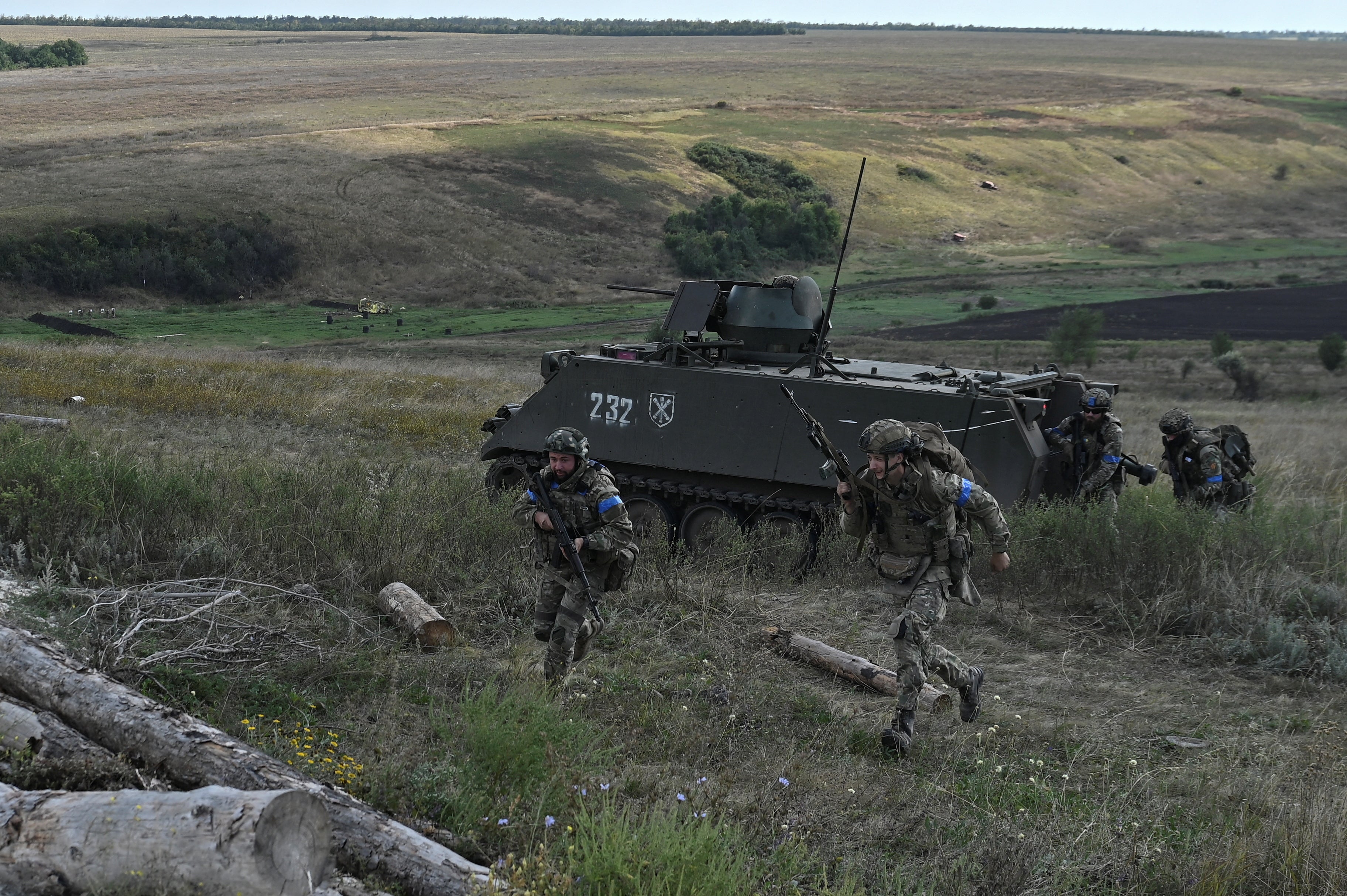
Solo is now part of a QRF (Quick Reaction Force) currently based not far from the Russian border. There are regular skirmishes all along the frontline, but the main mission is to recapture Bakhmut. The ownership of the city, almost completely razed, has become a symbolic, rather than a strategic, prize for both Moscow and Kyiv.
The environs of Bakhmut remain extremely dangerous. Two foreign volunteers delivering aid, Anthony Inat, a Canadian, and Emma Igual, from Spain were killed, and two others injured in a missile strike earlier this month.
Bakhmut was captured for Russia by force, with the mercenary Wagner Group leading. It was disbanded after the attempted coup against President Putin. The chief, Yevgeny Prigozhin, and the high command of the group were eliminated when the plane they were travelling in was brought down. The destruction was seen as an act of ruthless retribution by the Kremlin.
Solo and his comrades had done a great deal of their fighting against Wagner and the mercenaries they were up against were tough opponents. The Bakhmut clash in which Ghost and Kev were killed was against Wagner, as was another fierce encounter in Kupiansk, in Kharkiv Oblast, during attempts to retrieve the body of a British volunteer, Scotty.
“We have a motto in the [British] army, as you know, ‘leave no man behind’,” says Solo. “We went to get Scotty’s body five times, it was lying in a sunflower field. The Russians knew we’d keep on trying, and they would put down heavy suppressing fire for us.
“One night we went in wearing anti-thermal camouflage which should make us less of a target. That may have worked, what we didn’t know was that the field had more mines put in. One of the guys suddenly whispered to say ‘stand absolutely still’. I froze and then did a slow pirouette when I was asked to turn around. The guy was holding a piece of string which had tangled around me, the other bit was attached to a mine. They cut the wire carefully: I was in a complete cold sweat.”
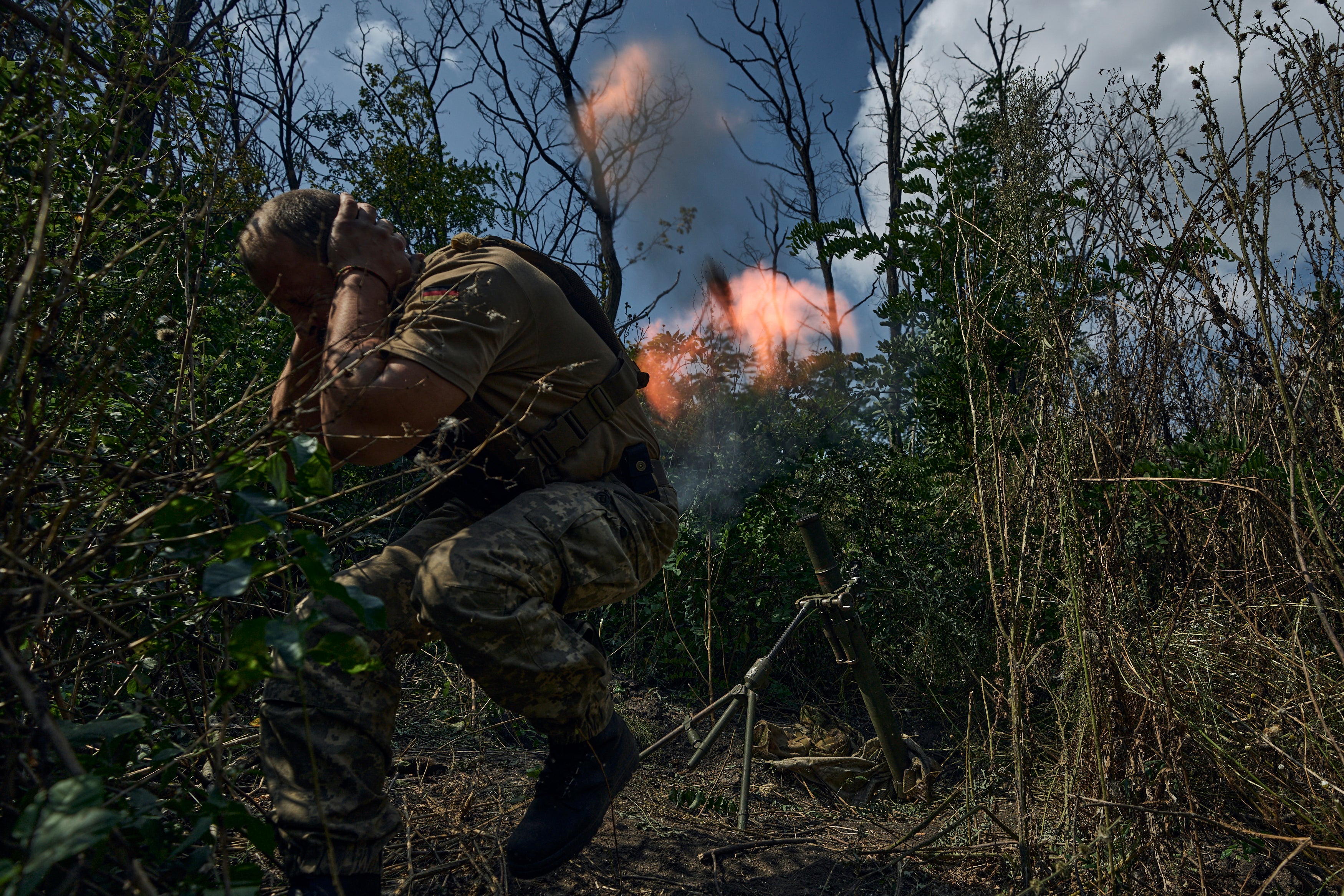
The Ukrainians, Solo wants to stress, also did their best to retrieve the body: “They went in quite a few times as well, risking their lives. The Russians had used Scotty’s body as bait, they had booby-trapped it. [In] the end it had to be winched out with a grapple-hook pulley. There was enough of it left for DNA samples for identification.”
Solo and his team mourn the loss of comrades like Scotty. They are glad of the departure of others. One was an American, who had given himself the moniker “Johnny Alabama”. The 25-year-old supposed US army veteran became unpopular soon after arriving because of his attitude and his braggadocio.
“He was a real slovenly soldier, he annoyed people, no units wanted him,” says Solo. “I felt a bit sorry for him. I thought perhaps with the right training he would shape up. I paid for his hotel room when he didn’t have any money. He became a real liability, he started turning up drunk. It reached a point when he couldn’t be allowed to use a firearm. He left soon afterwards, just disappeared.”
In February 2023, a video appeared of “Johnny Alabama” sitting in a restaurant in Moscow with a journalist from the Russian state-controlled broadcaster RT. He claimed to have been a dedicated communist who had infiltrated the Ukrainian armed forces to gather intelligence.
“Mate, we have come across some real Walter Mitty’s, weirdos, I tell you,” Solo shakes his head. “We have had 18-year-olds who had said they had been CIA career officers. As for all those who say they had been in the SAS... It’s mind-boggling.”
Some good soldiers have also fallen by the wayside. Leeds had found a press badge and filmed himself wearing it on his body armour while carrying a gun: “It was a silly joke, stupid thing to do. The consequence was that he was dismissed. It was a shame, he was a decent guy. I think he’s taking a little time off now back home, deciding what to do, hopefully he’ll come back if he wants to. We’ll have to see.”
For himself, Solo remains committed to Ukraine. As well as putting his life on the line, he has spent a sizeable portion of his savings, he says, on himself as well as fellow volunteers.
“I suppose one can say I’m trying to recreate my life in the army. I certainly enjoyed my time there and probably left a bit too early,” he reflects. “But it’s more than that. I feel I’m doing something worthwhile here, fighting for a good cause. I know some people would say that’s corny, but that’s what I believe and I’m going to stay the course.”
Join our commenting forum
Join thought-provoking conversations, follow other Independent readers and see their replies
Comments